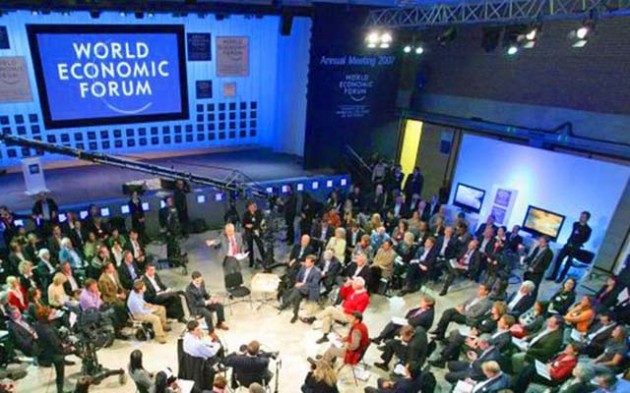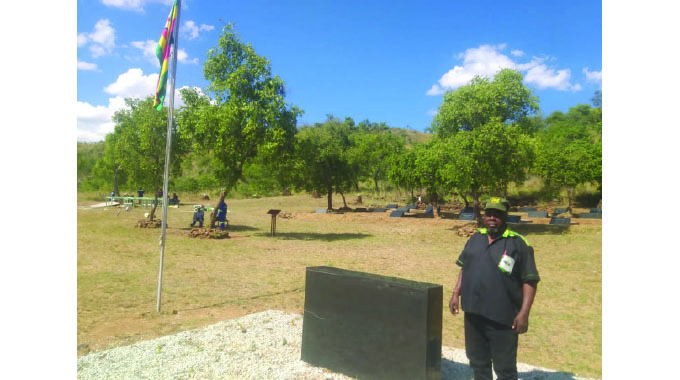WEF, a big opportunity for Zimbabwe

At least 1 900 leaders from the private sector and a further 900 NGOs, labour, arts and the media will converge in Davos, Switzerland, next Monday for the 48th World Economic Forum
Victoria Ruzvidzo In Focus
The 48th World Economic Forum, which begins in Davos, Switzerland next Monday is a critical platform that Zimbabwe needs to maximise on as it pursues its re-engagement thrust.
WEF brings together governments, corporates, donors, the academia, labour and other high level players who control the global socio-economic levers. It is thus quite important and befitting that President Mnangagwa and his economic ministers in particular, attend the meeting to market the country and grab the opportunity to inform and elaborate on developments that have taken place over the last two months.
No doubt many are curious and even excited about developments here. Zimbabwe has always attracted global attention, but largely for the wrong reasons over the past two decades or so. Hence this is a golden opportunity for the country to tell the world about the whole new thrust and the abundant business opportunities this country offers.
We can only underestimate the impact of such meetings at our peril. The mileage that can be achieved at such forums is amazing. President Mnangagwa joins at least 10 other Heads of State and Government from Africa, nine from the Middle East and North Africa and six from South America.
At least 1 900 leaders from the private sector and a further 900 NGOs, labour, arts and the media will converge in Davos. It thus becomes obvious that Zimbabwe will benefit from such a gathering. Billion dollar deals are cut at WEF. The likes of Rwanda, South Africa and Ghana, to name a few from the continent, can attest to this.
Zimbabwe has largely lost out on opportunities to entice investors, tourists and potential global finance partners by staying away from such platforms except in one or two instances where Government was well represented at the highest level.
It has always been so sad to witness efforts by some local private sector players at WEF, who have had to go it alone, with very little Government support or no representation. At the time of going to print we were not yet sure if President Mnangagwa would be given a slot to address the gathering, but his mere presence there will account well for Zimbabwe.
Many business deals come out of networking at such platforms as the WEF. Already the new Government led by President Mnangagwa has received positive vibes from many regional and global partners who feel the country is now on the right path. It will thus not be too difficult to convince those attending the Davos meeting that Zimbabwe is the place to be in terms of investment, tourism and other activities that will propel the economy and bring a better life that most Zimbabweans yearn for.
It is also an opportunity for the Government to learn a few tricks on the best way to navigate through such challenges as the huge debt, liquidity crisis and others that continue to impede growth and development. The 100-day targets that most Government ministries and institutions are currently seized with can be achieved earlier and more sustainably if we maximise on the wealth of experience, expertise and other resources that will be found in one room at the mega-business meeting in Davos.
Zimbabwe’s economy is expected to breach the 4,5 percent growth target for this year. And this is no fluke. It is actually possible if we maintain the business momentum that came with the new leadership in Government.
The country has the resources and wherewithal to post double-digit growth figures in the not too distant future. What is required is the right attitude first and foremost.
Abundant resources above and below the soils are begging for exploitation so they can earn the country big bucks. Instead of being notorious we can become so famous that most global bodies with reputable financial muscle would want to be associated with us.
There are such institutions as the International Monetary Fund, the World Bank, the Africa Export and Import Bank and the African Development Bank, who usually feel obliged to assist us, hence, we can use the WEF as one such forum to really appeal to their conscience to help expedite our recovery process. The private sector needs to be represented at the highest level as well and be part of President Mnangagwa’s delegation.
In fact they are the ones to do the real work as Government facilitates. They have not disappointed at such forums, but they need to consolidate representation and ensure they put the best foot forward.
Such powerhouses as Old Mutual, Delta, Nestlé, Dairibord and a few others have attended WEF meetings over the past few years. They need to team up with others to form a more formidable force that should emerge from Davos richer.
The theme for this year’s WEF is. “Creating a shared future in a fractured Globe”. If Dubai, a largely desert country, can pour in $15,1 billion into the purchase of 40 Boeing 787-10 Dreamliners, how much more can a richly resourced country like Zimbabwe do, in time and with the right focus and mentality?
That figure finance our annual budget as a country four times over. I am not exactly a fan of Jay-Z, the US rapper. But he said something quite profound in an interview with Dubai Skies.
“My advice would be not to put things off. Its easy to have a dream, but then invent reasons as to why it’s not quite the right time to do it. The right time is now,” he said, when asked about a January plan for the new year.
In God I Trust!







Comments